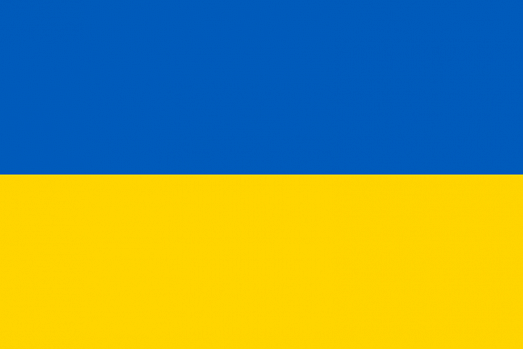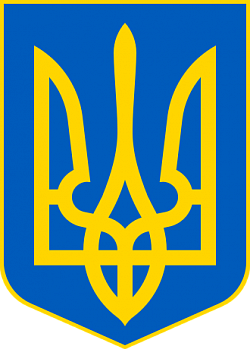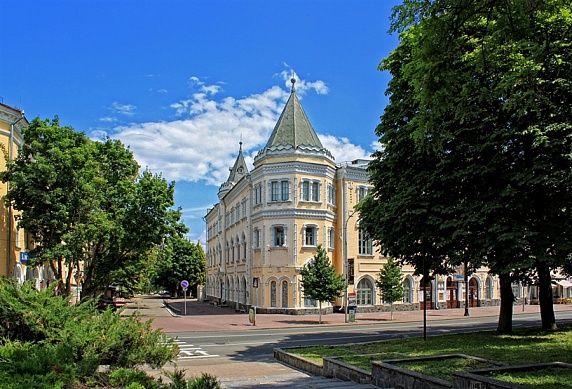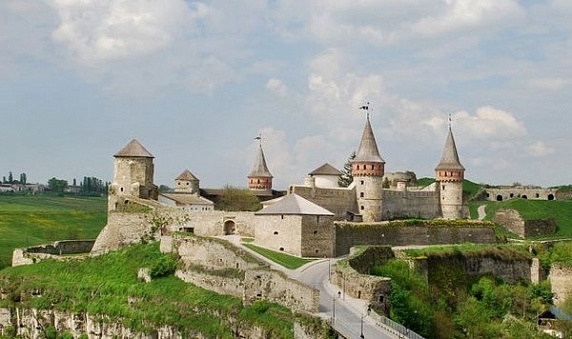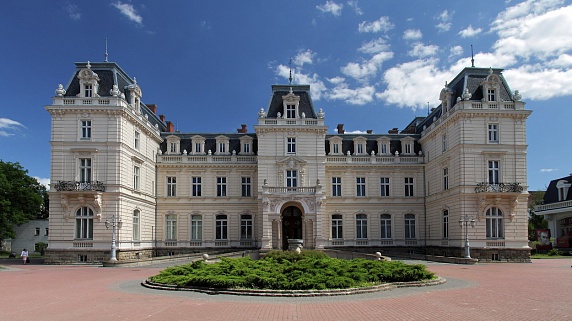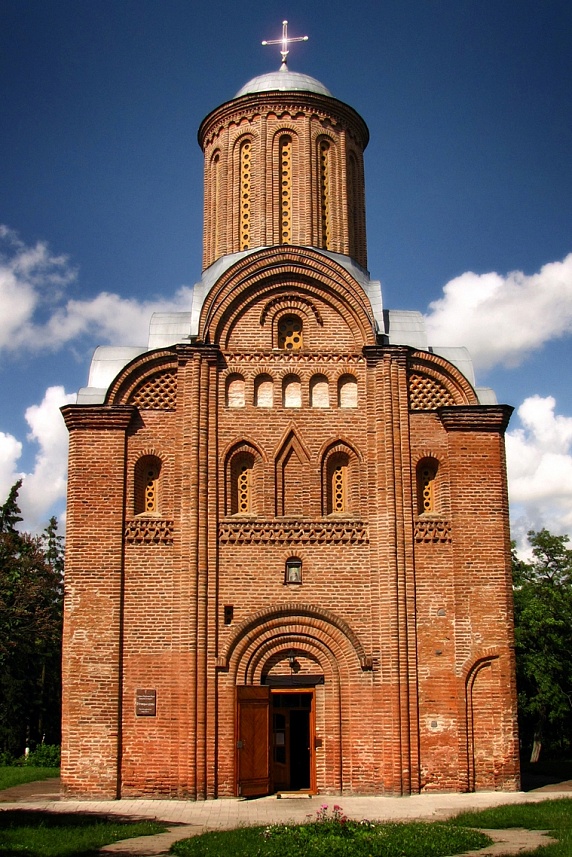 Ukraine
Ukraine
Remarks by Russia’s Permanent Representative to the OSCE Alexander Lukashevich at a meeting of the OSCE Permanent Council on the situation in Ukraine and the need to comply with the Minsk Agreements, Vienna, December 19, 2019
Mr Chairperson,
The Normandy format summit has sent clear signals on the need to further promote de-escalation, to achieve a political settlement and to have parties to the internal Ukrainian crisis agree on humanitarian measures. For this purpose, the Normandy format leaders called on the Contact Group to step up its efforts. It serves as a platform for the representatives of Kiev, Donetsk and Lugansk to engage in direct dialogue on the key aspects of the implementation of the Minsk agreements. Unfortunately, not all these signals were taken into consideration.
Firing incidents continued in Donbass throughout the past week. There were about 5,000 ceasefire violations. The Ukrainian Armed Forces continued to receive weapons by rail. In fact, the OSCE Special Monitoring Mission to Ukraine (SMM) reported dozens of artillery units and armoured vehicles at Rubezhnoye station, Lugansk Region (18 2S1 Gvozdika howitzers, 5 MT-12 Rapira guns, 15 tanks and 30 armoured vehicles were seen there on different days). In this context, implementing the permanent ceasefire agreement that was reached within the Minsk Contact Group in July becomes especially important. At the December 18 meeting of the Contact Group, the parties reaffirmed their commitment to the ceasefire and to taking measures to support it. This is about delivering on the existing obligations. It is vital that a full and comprehensive ceasefire is achieved rather than yet another truce, as many politicians in Ukraine have been suggesting.
Unfortunately, Kiev and Donbass representatives were unable to agree on new areas of disengagement along the line of contact at the final Minsk Contact Group meeting of the year. Not only did the Ukrainian negotiators evade discussing this matter in a constructive manner with people from Donbass, but also they failed to put forward any proposals. Moreover, Kiev does not seem to be prepared to disengage forces along the entire line of contact. At the same time, in accordance with the outcome of the Normandy Four summit in Paris, the sections for disengagement are expected to be designated and measures to this effect taken before the end of March 2020. Effective withdrawal of troops and forces, as well as demining could make it possible to consider increasing the number of crossing points for civilians.
The parties have yet again been unable to comply with an instruction from the Normandy Four and agree on a date of exchange of the detainees before the end of this year based on the “all established for all established” principle. In the course of the talks with representatives of Donbass in the Contact Group’s humanitarian subgroup, Kiev was unable to submit proposals for the so-called procedural and legal cleansing of the persons subject to exchange. On the other hand, Donetsk and Lugansk have come up with such a mechanism. Let me remind you that an amnesty and non-prosecution of the participants in the events in Donbass are directly provided for by paragraph 6 of the Minsk Package of Measures.
We are worried seeing how, against this backdrop, Kiev imitates or completely refuses to fulfill its political obligations under the Minsk agreements. We see how the authorities in Kiev try to replace them with half-hearted measures or acts that are hardly related to the Minsk agreements, like extending the law on the special status of Donbass for a year. However that law has not entered into force and must be permanent. By the way, in its current form, the document contains references to invalid regulatory legal acts. These imitations include introducing constitutional amendments regarding decentralisation. They do not contain any mention of the special status of Donbass. They were not discussed with Donbass representatives and are, in fact, just a set of measures to reform administrative and territorial arrangement dubbed “decentralisation.”
Meanwhile, under the Minsk agreements, a genuine and comprehensive political settlement is what matters if we want to establish peace in eastern Ukraine. Progress on the political track should go parallel with security measures, as approved by the Normandy format and agreed with Kiev. This progress, of course, is impossible without stepping up talks between Kiev, Donetsk and Lugansk in the Contact Group.
In the meantime, we hear strange declarations from Kiev about its openness to a dialogue with certain people from Donbass – those who used to live there but left Donbass several years ago. This is despite the fact that when working on the Package of Measures in Minsk, then Ukrainian president Poroshenko insisted that real representatives from Donetsk and Lugansk – the leaders of certain Donbass regions – put their signatures under this document. They did so. However later, Kiev methodically avoided direct dialogue and camouflaged its tactics with pseudo-patriotic rhetoric. These attempts to hinder an effective direct dialogue with Donbass are nothing more than a manifestation of the desire to continue the armed confrontation in Donbass and avoid reaching a settlement.
The price of Kiev’s ongoing military operation in eastern Ukraine continues to rise. According to the SMM, 145 civilians were victims in 2019, of which 18 were killed. The number of damaged civilian buildings increased to at least 550 this year, including 14 operating schools. Most of the victims and destruction from shelling occurred in certain districts of the Donetsk and Lugansk regions, including in the near vicinity of Donetsk, Gorlovka, Pervomaisk, the villages of Kominternovo, Sakhanka, Zolotoe-5 and Mikhailovka. The SMM data clearly show the targets of the Ukrainian military.
By the way, the cruelty of the Ukrainian armed forces’ servicemen with regard to the people of Donbass is evident not only from indiscriminate shelling, but also from the actions of the military on the territory controlled by the Ukrainian army. This is reflected in the report of the UN Office of the High Commissioner for Human Rights on the situation in Ukraine for the period from August 16 to November 15. Continuing gross, systematic and often unpunished violations of human rights, including the right to life, have been reported. The report mentions cases of extrajudicial killings, arbitrary detention, torture and ill-treatment of civilians, looting, robbery and violence by the Ukrainian military. All this was the reason for the UN Human Rights Observation Mission in Ukraine to urge the country's law enforcement agencies to investigate the crimes committed by the participants of the Kiev military operation in Donbass. An appalling situation with regard to protecting the rights of journalists was also noted.
Speaking of journalists, towards the end of the Normandy summit, Mr Zelensky publicly invited Russian journalists to visit Ukraine. However, over the past 10 days there were several incidents related to the Ukrainian authorities restricting their work. NTV correspondents were denied entry to Ukraine on three occasions. A Zvezda television channel crew was detained when leaving Kiev on December 13.
Mr Chairman,
This year, there have been some encouraging developments related to resolving the internal Ukraine crisis. There was some progress within the Minsk Contact Group, a disengagement of troops and hardware has been carried out at three pilot sites, and a Normandy Four summit was held. However, contradictory signals from Ukraine’s leadership on its future strategy have so far failed to provide any evidence that this process is fully underway. We hear some officials in Kiev, including Foreign Minister Prystaiko, talk about the need to “adjust” some of the provisions of the Minsk Package of Measures, which, he believes, “have partially lost relevance.” We caution against attempts to revise this document approved by UN Security Council Resolution 2202 and recognised as a non-alternative international legal basis for overcoming the crisis in Ukraine.
Ukrainian leader’s statements on their desire to achieve peace are not enough. Now is the moment of truth when Kiev needs to show political will, stop imitating the fulfillment of its obligations, engage in implementing the Minsk Package of Measures, and start a dialogue with Donetsk and Lugansk.
Thank you.
